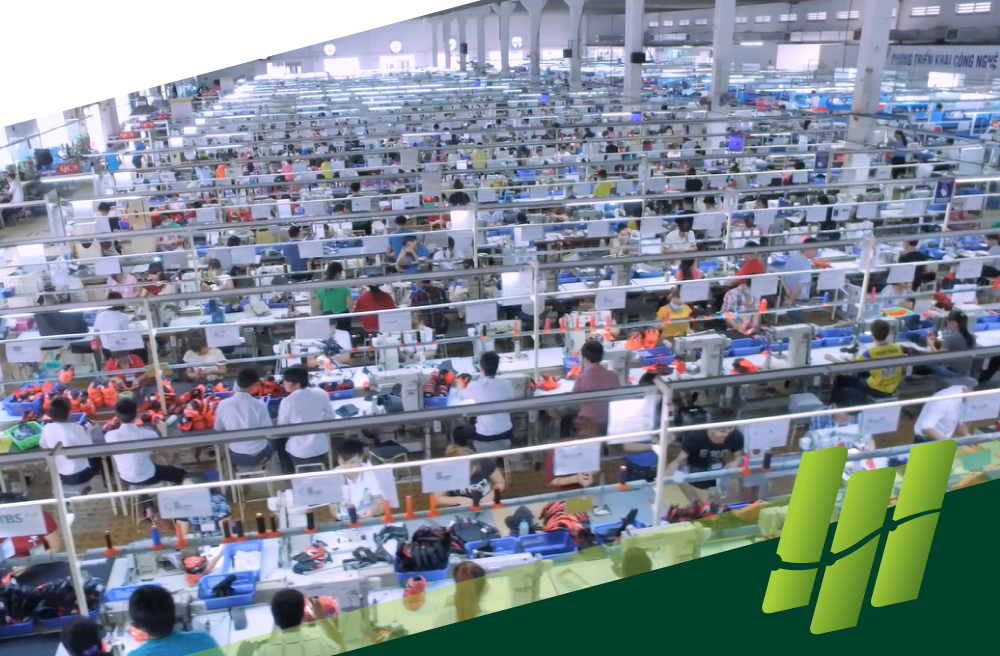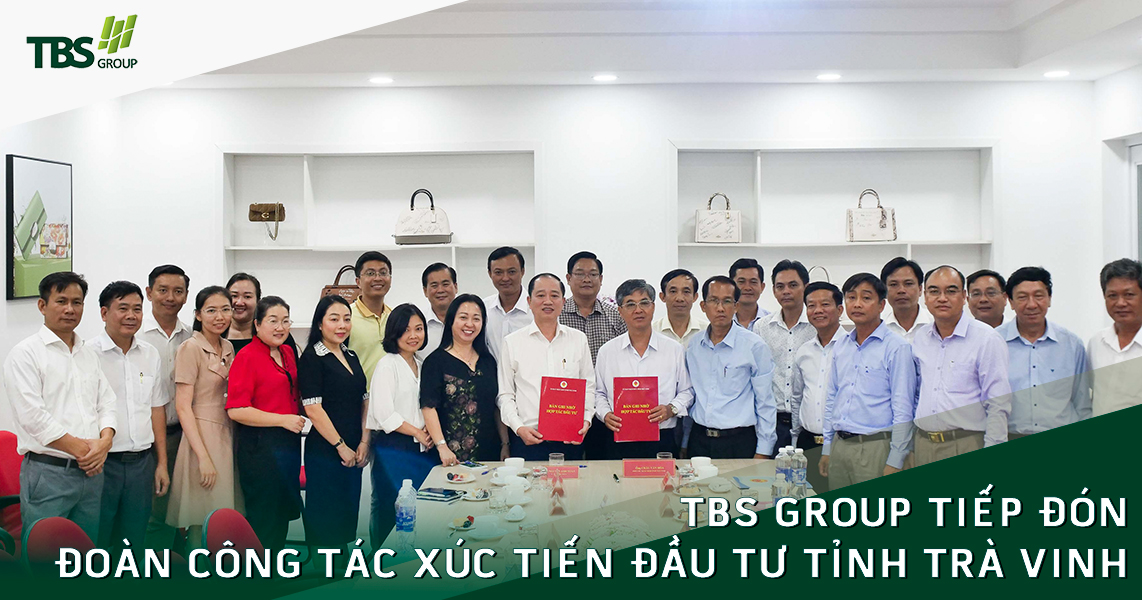“The Future of Employment” is one of many topics to be discussed at the APEC CEO Summit 2017. This event has participation from 800 heads of leading companies from 21 economics APEC members, and will be held on the APEC senior week, from 8th to 10th of November, in Da Nang City.
There are many leaders participating and making speech in this event including President of Vietnam Tran Dai Quang, President of the USA Donald Trump, Prime Minister of Japan Shinzo Abe (intended), President of the ROC Xi Jinping (intended), and President of the Philippines Rodrigo Duterte.
Before the event, The LEADER had an interview with Mr. Nguyen Duc Thuan, Chairman of TBS Group, one of four Vietnamese representatives joining the discussion at the APEC CEO Summit 2017.
Why do you choose the topic of “Future of employment” for discussion in APEC CEO Summit 2017?
Mr. Nguyen Duc Thuan:
The fashion and leather footwear industries of Vietnam are currently thriving thanks to the advantages of abundant local labor. However, the 4.0 technological revolution is creating new challenges for companies in the fashion and footwear industries. With the old operation and personnel management, Vietnamese enterprises face many difficulties and challenges.
“The risk of unemployment in countries with underdeveloped and developing economies is huge” said Mr. Nguyen Duc Thuan, Chairman of TBS.
It is predicted that with the current manpower management, in the next five to seven years, 1 million jobs will be lost, affecting people’s lives and social security. As a result, the change in training and awareness of employees and employers plays a key role in the survival and development of enterprises.
In addition, it is important to identify science and technology as the basis, the key determinant of labor productivity, and contribute to the reduction of other resources, resulting in business success.
That is why I chose the topic “The Future of Jobs” to attend the APEC CEO Summit 2017.
Being Chairman of Vietnam Leather, Footwear and Handbag Association, with thousands of member companies and millions of labourers, how do you think about actions that the private sector should do for development in comprehensive integration in present?
Mr. Nguyen Duc Thuan: I think that first of all, it is the responsibility of every employer, the employer, to be active in creating a safe and healthy working environment. Businesses must be where employees can work happily and enthusiastically.
However, in my personal experience, not every boss is enthusiastic enough to do this because in addition to the mind of the business owner, they also need financial capacity, without Every business must be effective in doing what one wants.
Each business must be responsible to its employees. Enterprises must have a rational organization model with clear functional positions and appropriate infrastructure so that workers can understand their jobs and work with the best productivity.
At the same time, businesses have to provide enough jobs, training and retraining for them when there is a change in technology and equipment so that they can adapt to change.
At the same time, businesses must anticipate changes due to the impact of globalization, and automation to have appropriate adjustment plans. Employees cannot do this.
What do the private company community in general, and companies in shoes and fashion in particular, expect from Government regarding of removing difficulties in policies and creating favorable business environment?
Mr. Nguyen Duc Thuan: From the fact that over the past 25 years, with TBS Group, I acknowledge that solving the current difficulties of the fashion and footwear industry requires both the support of the Government and self-motivation of the business.
“The government plays a particularly important role in the success of businesses.” Nguyen Duc Thuan, Chairman of TBS.
Each business must be responsible to its employees. Enterprises must have a rational organization model with clear functional positions and appropriate infrastructure so that workers can understand their jobs and work with the best productivity.
At the same time, businesses have to provide enough jobs, training and retraining for them when there is a change in technology and equipment so that they can adapt to change.
At the same time, businesses must anticipate changes due to the impact of globalization, the impact of automation to have appropriate adjustment plans, employees cannot do this.
What do the private company community in general, and companies in shoes and fashion in particular expect from Government regarding of removing difficulties in policies and creating favorable business environment?
Mr. Nguyen Duc Thuan: From the fact that over the past 25 years, with TBS Group, I acknowledge that solving the current difficulties of the fashion and footwear industry requires both the support of the Government and self-motivation of the business.
Skilled and healthy laborers, if the enterprises do business effectively and the business is good, the new government has revenue source. Thus, when the government provides support to employees, or supports the business, it is the Government that is nurturing its revenue. All governments around the world have such thoughts.
There are two things that we expect from the government. First of all, the government needs to have strong reforms to create a really good business environment so that businesses can focus on business rather than being distracted the deal. At the same time, the Government should have a specific strategy to help businesses form a qualified workforce, adapt to new changes in the world.
To best support today’s private footwear businesses, I think the Government should do two things well:
First, there must be a good strategy for educating students at primary and secondary levels, equipping students with modern, useful knowledge and skills to adapt to the changes of life. It is only cramming broken pieces for examination. Thus, later on when going to college or even without college entrance exam but go to work immediately businesses only training for children about the profession, each person has the ability to adapt themselves quickly.
APEC economies need to have policies, along with specific budgets, to assist the business in retraining in the face of major technological change as well as support for mechanized enterprises. The internal facilities help maintain the health and knowledge of workers such as housing for laborers, training centers, libraries, kindergartens in enterprises.
The government can build recreational facilities, kindergartens, sports centers, libraries, language centers, etc. in concentrated labor areas such as industrial parks and industrial clusters. … with a reasonable fee for employees to have a material and spiritual life with reasonable costs.
On the business side, enterprises need to actively change the way management, training human resources to grow up, catch up the trend of the times. At the same time, enterprises must clearly define the role of science and technology to apply to the management and business mode.
According to you, which are challenges for creation of a good and effective working space of private companies?
Mr. Nguyen Duc Thuan: As mentioned above, the biggest challenge for the private sector in Vietnam and some developing countries in APEC is the financial issue to implement the issues related to this topic, especially over 90% of Vietnamese enterprises are small and medium enterprises. This is a difficult math problem but not a solution.
In my opinion, not every business has the same money to do the same but need to cooperate in harmony, need to separate what do own things, what need to coordinate. For coordination, The local government must be the conductor of the connection, especially the district or inter-district government, and then work out what to do with each other.
Local governments do not need to use the budget, but they need to be able to connect, preside over and create conditions for businesses to invest in infrastructure and social works. At the same time, governments and businesses must manage their own work, thereby creating happy working communities that benefit from a progressive society.
If this is done, not only local but the whole country will create a working environment and live well so that workers are assured of improving, upgrading, adapting to a world. is changing rapidly every day, every hour.
Thank you Sir!
TBS Group – Together we Build our Success





